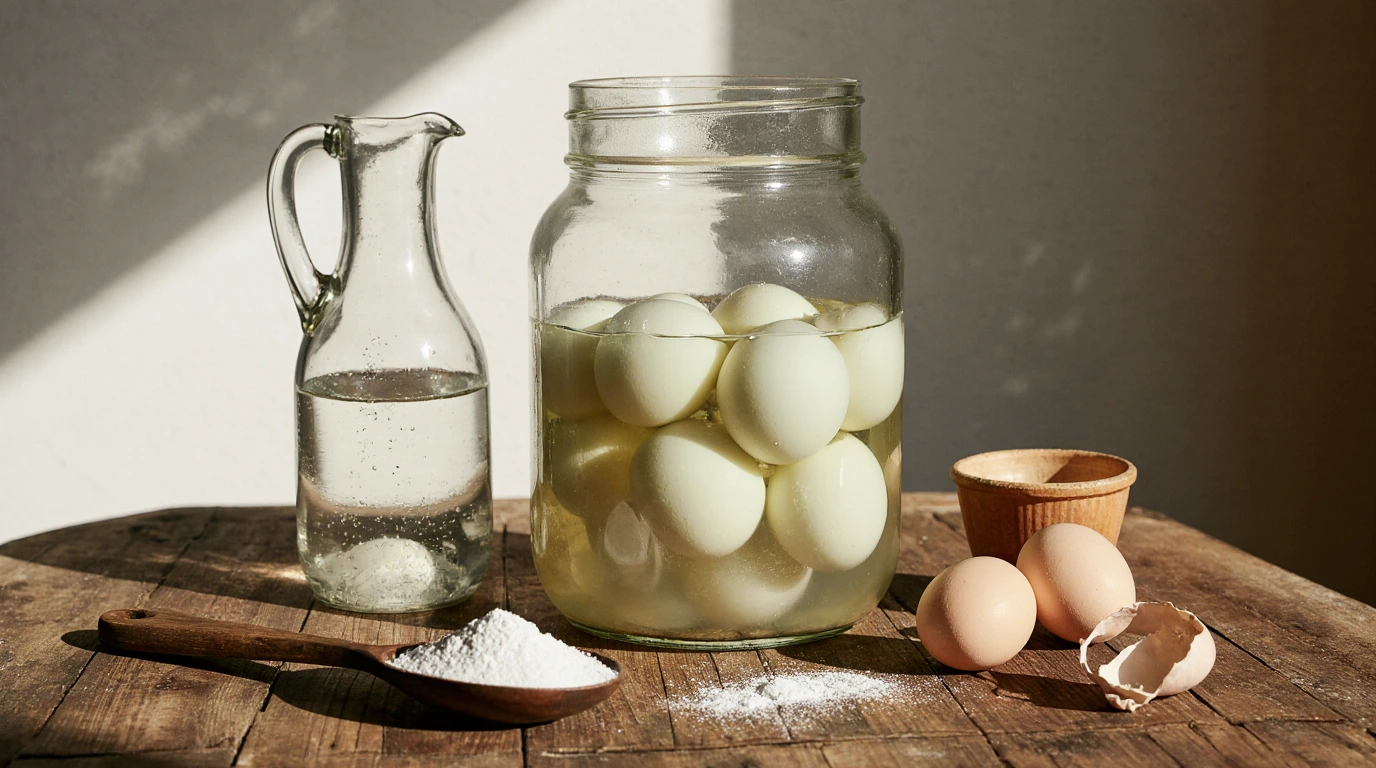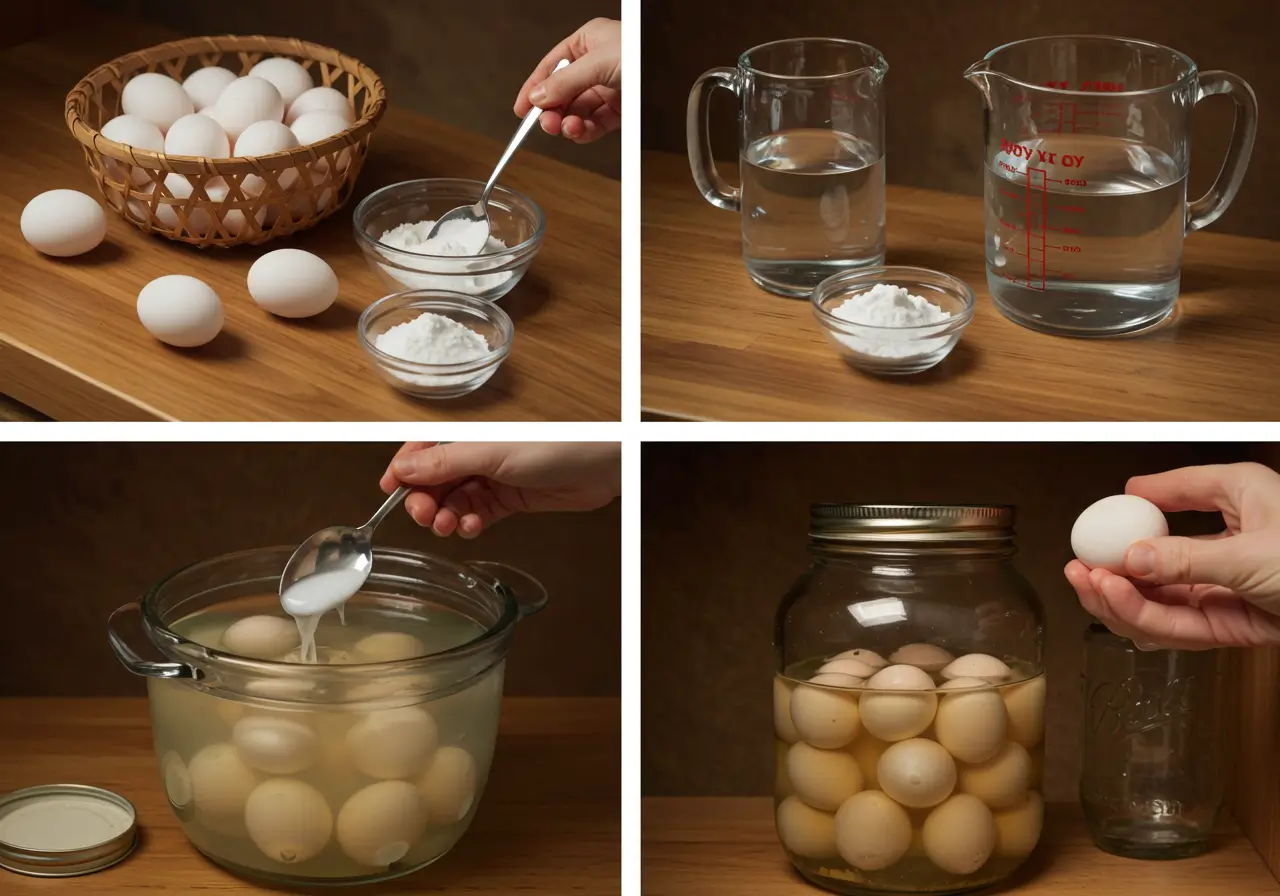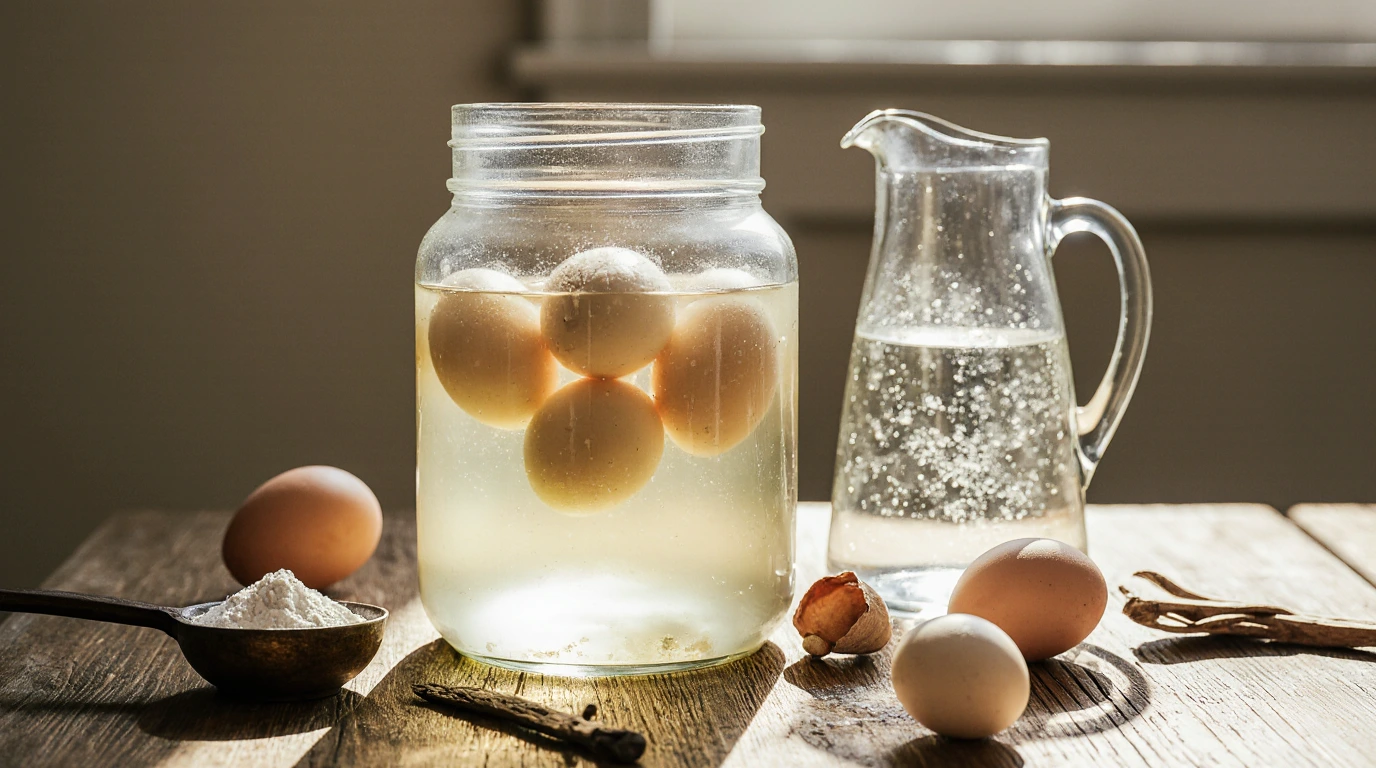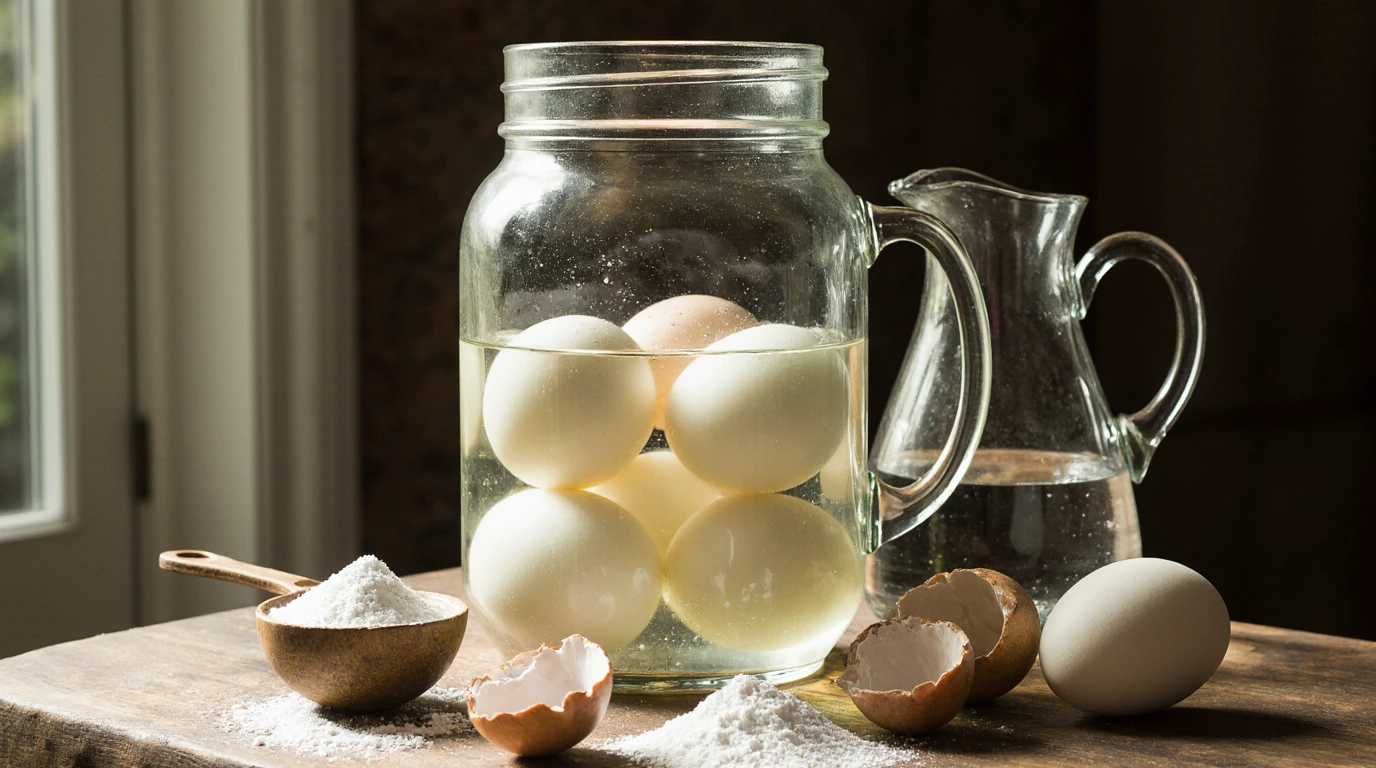Water Glassing Eggs: Why You Should Try This Old Trick
Table Of Contents
Table of Contents
Did you know that before refrigeration, people stored eggs for months without spoilage? The secret? Water glassing eggs—a century-old preservation method that keeps eggs fresh for up to a year. In today’s world of uncertain food supply chains and rising prices, this forgotten technique is making a comeback. But does it really work? And how can you do it safely at home?

In this guide, we’ll explore water glassing eggs, a simple yet effective way to preserve farm-fresh eggs naturally. Whether you’re a homesteader, prepper, or just curious about old-fashioned food storage, this method could be a game-changer for your kitchen.
What You’ll Need for Water Glassing Eggs
The beauty of water glassing eggs lies in its simplicity. You only need two key ingredients:
- Fresh, unwashed eggs (store-bought washed eggs won’t work—more on that later!)
- Hydrated lime (calcium hydroxide) or pickling lime (food-grade, non-toxic)
- Filtered or distilled water (chlorinated tap water can interfere with preservation)
- A clean, food-safe container (glass, ceramic, or food-grade plastic)
Why unwashed eggs? Fresh eggs have a natural protective coating called the “bloom” that seals the pores, preventing bacteria from entering. Washed eggs lose this layer, making them unsuitable for long-term storage.
How Long Does Water Glassing Eggs Take?
Unlike canning or fermenting, water glassing eggs requires minimal active time:
- Prep time: 10 minutes
- Curing time: 12–24 hours (for lime solution to settle)
- Total storage time: Up to 12 months (if stored properly in a cool, dark place)
Compared to freezing (which can alter texture) or refrigeration (which only lasts weeks), water glassing eggs is one of the most efficient long-term storage methods.
Best Tools For Best Snack From Amazon:
Step-by-Step Guide to Water Glassing Eggs

1. Select the Freshest Eggs Possible
- Use eggs less than 24 hours old for best results.
- Avoid cracked or dirty eggs—they can spoil the batch.
2. Prepare the Lime Solution
- Mix 1 ounce (2 tbsp) of hydrated lime per 1 quart of water.
- Stir well until fully dissolved (the water will turn milky).
3. Gently Place Eggs in the Container
- Arrange eggs pointy side down to minimize air pocket exposure.
- Ensure they’re fully submerged—no floating!
4. Store in a Cool, Dark Place
- Ideal temperature: 50–60°F (10–15°C).
- A basement or root cellar works best.
5. Check Eggs Periodically
- Every few months, inspect for cracks or off smells.
- Remove any questionable eggs immediately.
Pro Tip: Label your container with the date so you know when to use them by!
Nutritional Benefits of Water Glassing Eggs
Eggs preserved through water glassing retain nearly all their nutrients, including:
✔ High-quality protein (6g per egg)
✔ Vitamin B12, D, and choline (essential for brain health)
✔ Antioxidants like lutein & zeaxanthin (great for eye health)
Unlike pickled or salted eggs, water glassing doesn’t alter flavor or texture—they taste just like fresh eggs when cooked!
Healthier Alternatives & Variations
If you can’t find hydrated lime, try:
- Pickling lime (same chemical composition)
- Wood ash solution (traditional method, but less precise)
For vegan readers: While this method is egg-specific, lacto-fermentation is a great plant-based preservation alternative.
Best Ways to Use Water Glassed Eggs
Once preserved, use them just like fresh eggs:
- Scrambled, fried, or boiled
- Baking (cakes, bread, custards)
- Homemade pasta or mayo
Fun Fact: Some homesteaders report that water glassed eggs have richer yolks due to slight pH changes!
Common Mistakes to Avoid
❌ Using washed eggs (they’ll spoil faster)
❌ Storing in a warm place (speeds up degradation)
❌ Overcrowding the container (eggs need space to stay submerged)
❌ Skipping the lime (water alone won’t preserve them)
How to Store Water Glassed Eggs for Maximum Freshness
- Keep the container sealed to prevent contamination.
- Avoid temperature fluctuations—consistency is key.
- Use oldest eggs first (first in, first out rule).

Bonus Tip: If an egg floats in water after storage, discard it—it may have gone bad.
Final Thoughts
Water glassing eggs is a brilliant, low-tech way to extend the shelf life of fresh eggs without refrigeration. With just lime and water, you can enjoy farm-fresh eggs year-round—perfect for emergencies, off-grid living, or simply reducing food waste.
Ready to give it a try? Grab some fresh eggs and lime, and start preserving today! Have questions? Drop them in the comments below—we’d love to hear your experiences.
FAQs About Water Glassing Eggs
1. Can I use store-bought eggs for water glassing?
No—most commercial eggs are washed, removing the protective bloom. Only farm-fresh, unwashed eggs work.
2. Do water glassed eggs taste different?
Nope! They taste just like fresh eggs when cooked.
3. How do I know if an egg has gone bad?
If it floats in water or smells off, discard it.
4. Can I reuse the lime solution?
No—always make a fresh batch for each new set of eggs.
5. Is water glassing safe?
Yes, as long as you use food-grade lime and follow proper storage guidelines.
Loved this guide? Share it with fellow homesteaders and egg lovers! 🐣
Try These Recipes Next !!
If you love cooking and are looking for more recipes, we have a selection you’ll enjoy.
- Over Hard Eggs
- Diced Chicken Recipes
- Chicken Fajita Salad
- Delicious Courgette Pasta
- Southwestern Black Bean Salad
Leave a Reply
There are no reviews yet. Be the first one to write one.

